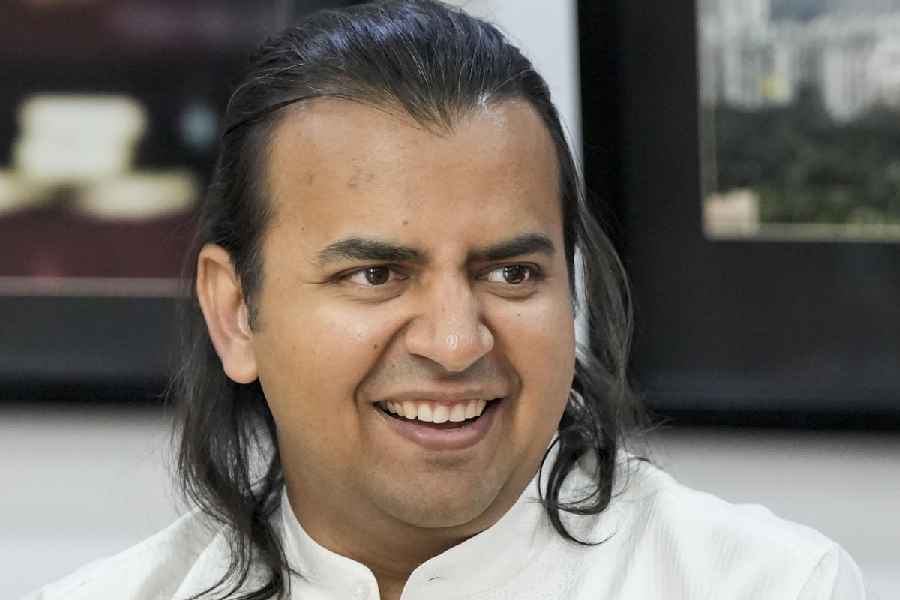Ola Founder Bhavish Aggarwal is placing bold bets on new-age technologies with a view for India to be at the forefront of the current global tech transition led by AI, and build jobs of the future in the country.
In an interaction with PTI editors at the agency's headquarters here, he said the private sector has to do the bulk of job creation, step up and do more, while creating an enabling environment and correcting imbalances, such as that of trade, are the responsibility of the government.
Aggarwal also supported the government's move to offer fiscal incentives to global EV makers, including Tesla, through the new EV policy saying it is important for India to attract all kinds of investment, and globally established players will help in the development of the EV ecosystem in the country.
The group's newly-listed entity Ola Electric aims to make India a global electric vehicle (EV) hub but the country has to invent an EV and energy transition paradigm for itself based on its needs as the world cannot achieve a sustainable future without India, he added.
"There is a global technology transition happening and AI is a very important technology of the future, and we in India need to lead this journey. If you look at the current state, I think we are still adopters of somebody else's technology paradigms, especially in the digital world," Aggarwal said, explaining why the Ola group had set up AI start-up Krutrim last year.
One of the things in Krutrim is to build AI models on Indian data, which is more attuned to Indian use cases, Indian paradigms, he said, adding, "We are making our own AI, on our own cloud, on our own chip." Despite India producing 20 per cent of the world's digital data at present, he lamented that the country does not fully own the data, as 80 per cent are stored outside, which are then processed into AI and "brought back into India and sold to us in dollars".
When asked about concerns over AI leading to job losses, he allayed the apprehension saying that the IT boom created jobs in India when people feared that computers would take away jobs, and AI is a similar tool.
"AI is not going to replace anyone. Maybe that future is a few decades away... We don't need to get anxious about that future right now. We need to, as a country, see that AI is going to amplify productivity. If we don't get onto the bandwagon, we will be left behind...," he asserted.
In his view, Aggarwal said the way forward is for India to become experts in future technology.
"Future technologies bring with it jobs of the future, supply chain of the future. And if we are global leaders, we are the fastest adoptive market of future technologies (then) jobs of the future will be built in India, supply chains of the future will be built in India. This is the only way... If we focus on protecting the past, you remain uncompetitive," he added.
Sharing his take on employment generation in India, Aggarwal said, "I actually believe the private sector has to do the bulk of the job creation. The government's job is to create the enabling environment, create the fundamentals, help correct imbalances wherever they are, be it trade imbalances, etc and incentivise wherever it needs to be incentivised, like the PLI schemes." The government's steps such as the employment-linked incentives will also encourage private industry, he said, adding "But fundamentally the private sector has to step up and do more".
Asked if the government is doing enough to create that ecosystem for the private sector, Aggarwal said, "I'm not in the government, so I want to put the limelight on ourselves. Is the private sector doing enough? I think we all can do more, and I'm on the same page. We all need to do more." In response to a query on his views over the government in extending the fiscal concession that companies like Tesla have been demanding from India, he said, "It is very important for India to attract all kinds of investment, especially (from) world leading companies.
"Tesla is a best in class company. The more companies like these invest into India, the better it is for India, in a broad sense as well for the industry." He further said, "The (EV) ecosystem, including my company, will benefit from it, because it will raise the bar on expertise, on excellence, on talent, everything..." About the newly-listed entity Ola Electric, he said, "Our mission at Ola electric is to really make India a global EV hub." The company will build products such as electric two and three-wheelers that Indians need for the country to be able to invent an EV and energy transition paradigm for itself, different from the current global solution for sustainability that is focussed on electric luxury cars, Aggarwal added.
On Ola Consumer, he said the ride-hailing mobility vertical is fairly profitable, while it is investing into the new e-commerce for which it has partnered with ONDC.
Except for the headline, this story has not been edited by The Telegraph Online staff and has been published from a syndicated feed.










